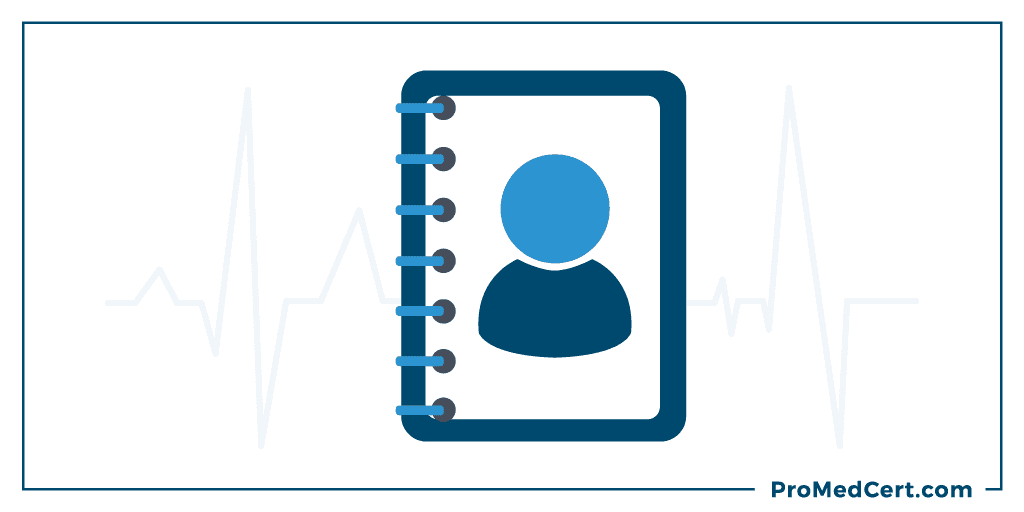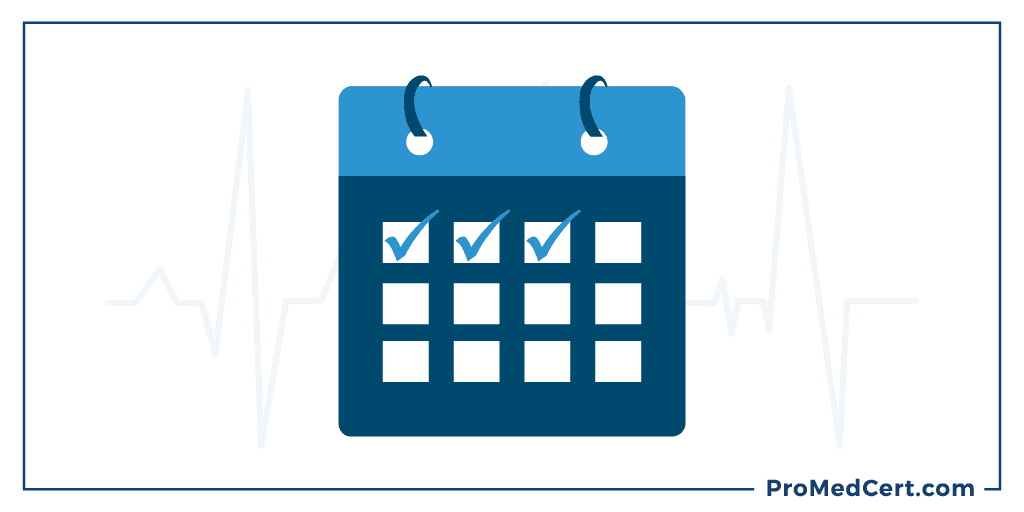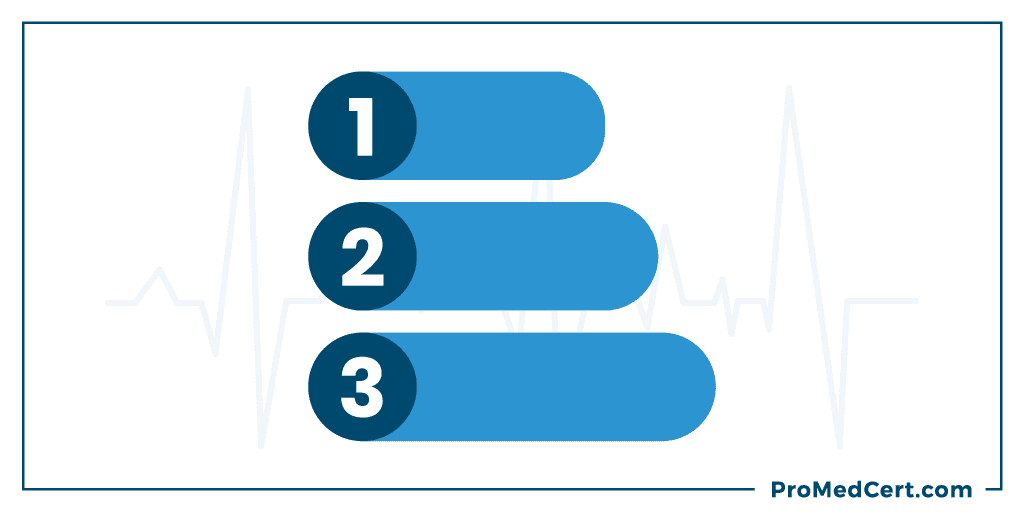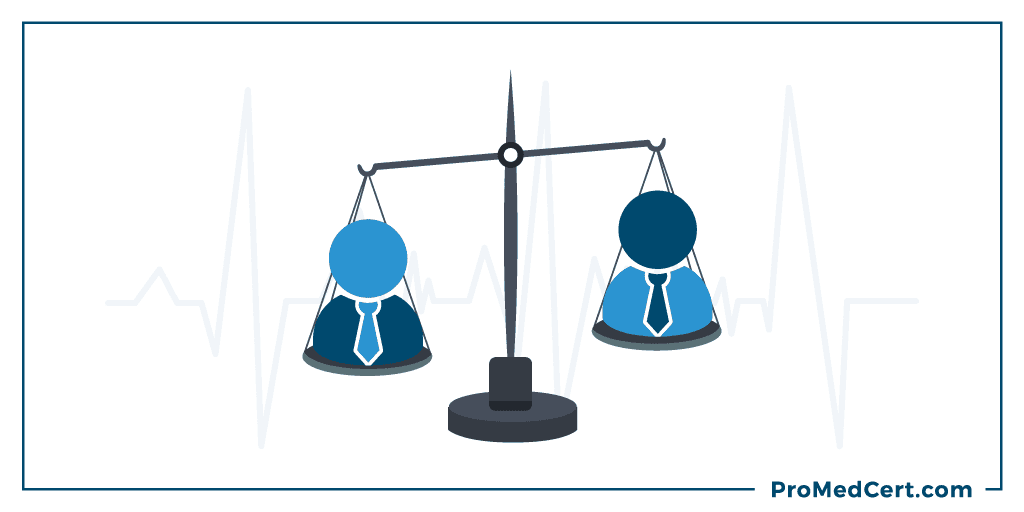5 Life Hacks for Busy (and Aspiring) Medical Professionals

Finding a balance in life can be challenging, but for those seeking a career in the medical field, those challenges are multiplied tenfold.
Finding the time to keep up with your studies while juggling a full-time job, delivering the best possible care to your patients and keeping everyone in your personal life happy can be downright exhausting.
It’s no wonder burnout is such a serious problem for health care professionals.
The good news is, there are ways to take some of the weight off your shoulders and make managing your ever-growing to-do list a little less stressful.
Let’s take a look.
Create and use an agenda.

With so much on your plate, it can be really easy for something important to slip through the cracks.
One of the best ways to keep your life on track – both personally and professionally – is to invest in an agenda.
There are plenty of different sizes and styles to choose from, but it really doesn’t matter much what your agenda looks like.
The key is using it.
And by using it, we mean writing everything down.
Everything.
Have a class to attend?
Write it down.
Need to block out time to study for your upcoming test?
Write it down.
Medical certification expiring soon?
Write it down.
Have a bill due, a personal appointment or a coffee date with a friend coming up?
Write.
It.
Down.
If you really want to get organized, grab a few different colored highlighters and use them to prioritize what’s written into your agenda.
When you complete a task, cross it off.
If you skip something, keep it there so you can go back and get to it a later date.
For instance, if you blow off a class, don’t cross it off in your agenda until you’ve gone over the material you missed.
Make checking your agenda a daily habit.

Writing stuff down is all fine and good, but if you’re not actually going back and regularly checking to see what’s coming up on your agenda, there’s really no point.
This is especially important for activities, appointments and deadlines that don’t occur on a frequent basis.
For instance, if you scheduled your annual physical 6 months ago, chances are you’ll have forgotten about it by the time the date arrives without keeping close tabs on your agenda.
It can also be helpful to look at your schedule on Sunday for the upcoming week and then create reminders for yourself.
It doesn’t matter if these reminders are digital, such as through an app on your mobile phone, or physical, like transferring information from your agenda to a new document that you keep posted at your desk for quick reference.
Find what works for you and then commit to it.
Always aim for efficiency.

Let’s face it.
As a busy or aspiring medical professional, your time is precious.
The only way you’ll achieve the balance you so desperately seek is to find a way to optimize and operate as efficiently within that time as possible.
Obviously, cutting corners at work is not a possibility, but multitasking in your personal life can make a huge difference in your ability to keep all the balls in the air and not lose your mind in the process.
There are lots of ways you can make your life more efficient.
For instance, you might strategize your travel time by planning meetings, courses and errands based on their location.
Or, you might opt to listen to audio recordings of your notes so you can get some study time in while you’re in the car driving, commuting on the train or at the gym exercising.
Map out your agenda while you’re grabbing a bite to eat.
Call your family while you’re walking into work.
Think in terms of multitasking and you’ll surely find ways to do so that will save you time and make your life a little easier.
Prioritize, prioritize, prioritize.

Not everything on your agenda or daily to-do list is going to be make or break.
The reality is, you’re not always going to get to everything.
That’s why we suggested using a color-coded highlighting system with your agenda to help you prioritize what tasks are most important and which ones can wait.
Some stuff, like going to a job interview or getting extra studying time in before your upcoming exam, will be relatively easy to prioritize.
For the stuff that’s not so straightforward, you may need to take a step back, do some reflecting and determine what you should be focusing your time and efforts on.
Ask yourself what the consequences will be for each task if you don’t get around to it.
Then, conquer your highest priorities first and move on to the rest as time allows.
And remember, you’re human.
Do what you can and what’s most important. The rest will fall into place.
Don’t compare yourself to others.

Just because your colleagues seem to have it all together doesn’t mean you can handle the same workload, course-load or personal commitments as them.
We all have our own maximum level of productivity, so while pushing yourself to do as much as you can is good, trying to take on too much will only end up coming back to bite you in the end.
Figure out what your limits are and learn how to best manage yourself within those personal limits.
And remember to appreciate the work you do complete rather than focusing on the tasks on your to-do list that you weren’t able to get to.
Keep a positive attitude and find satisfaction in the fact that you’re doing your best.
The more confident you become in your own abilities, the more efficient and effective you’ll be.
Making it in the medical field isn’t easy.
And we’re not even referring to the clinical side of things.
By taking the time to plan, prioritize and apply the above tips, you’ll soon be on the way to mastering your schedule and your life.

